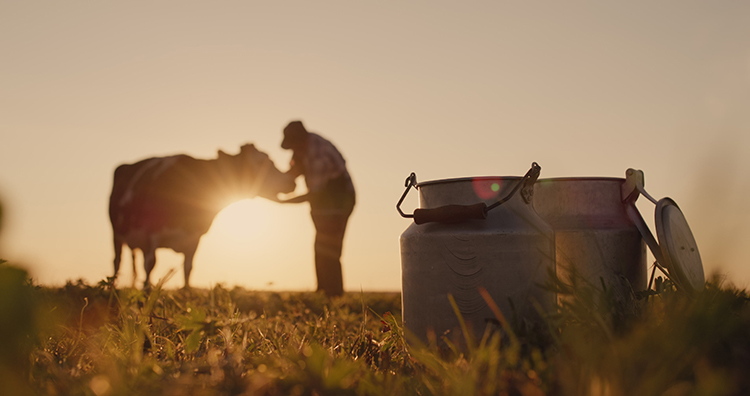
When consumers accept dairy industry practices, or in other words, when dairy has a social license to operate, milk and dairy products can provide valuable, affordable nutrition. But it’s not just a social license that dairy farmer Mary Kraft believes in; she likely echoes the thoughts of many dairy producers when she says it is a social responsibility to bring that nutrition to the marketplace.
A passionate dairy advocate, Kraft knows that sharing the many good stories dairy has to tell is vital to allow the dairy industry to act on that responsibility. She highlighted three storylines dairy should be especially vocal about on the October 12 Hoard’s Dairyman DairyLivestream.
The first comes from no action of dairy farmers themselves but instead because of the incredible animals they work with. “We have a recycling machine that is unrivaled in the world of making great, nutritional milk,” Kraft stated. Thanks to the cow’s ruminant nature, it is able to filter down all kinds of human-inedible products and those that would otherwise be wasted and thrown away into nature’s most nearly perfect food — milk.
She specifically noted the role that by-product feeds play in dairy rations. When cows are able to utilize ingredients such as cottonseed or brewers grains — leftovers from producing items for human use like clothing and alcohol — they are diverted from landfills and instead used to produce valuable nutrition. “That’s a benefit for cleaning up the environment,” said Kraft.
Another positive story the Colorado dairy farmer believes in is the value of manure as a fertilizer for growing feed for the cattle as well as crops that can be used for human food. It is not a waste product, she emphasized, but instead part of a larger cycle. “The cow is playing a very big role in this circle of life, and everything that she does can be used multiple times,” she described.
Finally, Kraft touched on the role of economies of scale as it relates to social license. “If everyone had to have one cow and go milk it every morning before you went to work, lots of people wouldn’t be having dairy products for their breakfast,” she said. But, because we have individuals around the country that specialize in dairy production, they are able to expend more on resources and use time and labor more efficiently because it is their sole focus.
She likened the centralization of farming efforts to public transportation. “A bus costs a lot to run, but if you have 50 people on the bus, 50 peoples’ cars would use up far more fuel than the one bus,” Kraft illustrated. When farmers have access to more resources, they can take better care of their animals, land, and people with tools such as the individual cow monitors Kraft uses to identify and treat sick animals.
There are many positive efforts about dairy to shout from the mountaintops, but these three are a few places to start. Sharing how we are being stewards of the resources we have is how dairy will have the opportunity to practice its social responsibility to provide nutritious milk and dairy products.
To watch the recording of the October 12 DairyLivestream, go to the link above. The program recording is also available as an audio-only podcast on Spotify, Google Podcasts, Apple Podcasts, and downloadable from the Hoard’s Dairyman website.
Register to continue receiving updates
The next broadcast of DairyLivestream will be on Wednesday, November 16 at 11 a.m. CT. As of January 2022, we moved to a new system. If you have not yet, you will need to re-register to continue receiving email updates and links to the webcasts. You can sign up here now. Registering once will sign you up for all future events.








